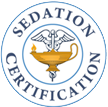Documents Joint Statement on Delegation American Nurses Association (ANA) and National Council of State Boards of Nursing Introduction:
There is more nursing to do than there are nurses to do it. Many nurses are stretched to the limit in the current chaotic healthcare environment. Increasing numbers of people needing healthcare combined with increasing complexity of therapies create a tremendous demand for nursing care. More than ever, nurses need to work effectively with assistive personnel.
The abilities to delegate, assign, and supervise are critical competencies for the 21st century nurse. In 2005, both the American Nurses Association and the National Council of State Boards of Nursing adopted papers on delegation.
Both papers presented the same message: delegation is an essential nursing skill. This joint statement was developed to support the practicing nurse in using delegation safely and effectively. Position Statement: Authentication in a Computer-Based Patient Record – 11/95 Summary: Every process in the health care delivery system must be evaluated to determine its value: to the patient, to the caregiver, and to the health of the nation.
Retrospective signature, in either electronic or paper form, represents a substantial administrative cost burden and prolongs the risk of using potentially inaccurate information. Putting processes in place which assist the author in ensuring accurate data entry, and instituting appropriate quality improvement mechanisms are critical to achieving the computer-based patient record and, ultimately, health reform goals. Quality and efficiency benefits can then be turned into increased access to health care for the nation's populace.
Position Statement: On Access to Patient Data – 11/30/95 Introduction: As defined in the Institute of Medicine patient record study report (The Computerbased Patient Record: An Essential Technology for Health Care) the computer- based patient record is "an electronic patient record that resides in a system specifically designed to support users through availability of complete and accurate data, practitioner reminders and alerts, clinical decision support systems, links to bodies of medical knowledge and other aids.
Position Statement: Computer-based Patient Record Standards – 11/95 Summary: Computerization of health information offers many opportunities to improve the nation's health care and reduce its costs. Some savings may be achieved through electronic billing. But longer term efficiencies can only be achieved within the context of an evolving new health care delivery system which is supported by a solid foundation of information used during the care process and as a source of scientific data on which to base rational health care policies.
Position Statement: Services to Families Following a Sudden Infant DeathSyndrome – 4/94 Summary: Families who experience the death of an infant from SIDS are immediately faced with a multitude of severe reactions. From the moment the infant is found the family begins to adapt to their loss, a process that continues throughout their lives. This process is affected by the response of their extended family as well as the community in which they live. ANA supports the position that specially trained nurses can assist families by providing informational and supportive services to those affected by SIDS. Furthermore, ANA supports that the training and support for nurses should come from SIDS programs.
Position Statement: Association of Operating Room Nurses Official Statement on RN First Assistants – 4/94 Preamble: Perioperative nursing practice has historically included the role of the RN as assistant at surgery. As early as 1980, documents issued by the American College of Surgeons supported the appropriateness for qualified RNs to first assist. AORN officially recognized this role as a component of perioperative nursing in 1983 and adopted the first Official Statement of RN First Assistants (RNFA) in 1984. Acceptance of this official statement by many state boards of nursing has supported that RNFA behaviors are recognized within the scope of nursing practice. AORN's official statement delineates the definition, scope of practice, qualifications, educational requirements, and clinical privileges that must be met by the perioperative nurse who practices as an RNFA. AORN further recognizes the need for appropriate compensation/reimbursement to RNs who fulfill this role in providing perioperative patient care.
Position Statement: Maintaining Professional and Legal Standards During a Shortage of Nursing Personnel – 8/92 Summary: The focus of this statement is to clarify the role of the regulatory mechanisms provided internally by the profession, and those provided externally by the state to assure public access to high quality nursing services. Further, the statement addresses the regulatory implications for nursing in labor market situations involving increased demands for nursing services and a resulting shortage of licensed nurses.
Position Statement: Role of the Registered Nurse in the Management of Patients Receiving IV Conscious Sedation – 9/91 Policy/Position: The Board of Directors endorsed the Position Statement on the Role of the Registered Nurse (RN) in the Management of Patients Receiving IV Conscious Sedation for Short- Term Therapeutic, Diagnostic, or Surgical Procedures. This was a result of the joint work of ANA and several specialty nursing organizations to develop position statements.
Position Statement: Role of the Registered Nurse in the Management of Analgesia by Catheter Techniques – 9/91 Policy/Position: The Board of Directors endorsed the Position Statement on the Role of the Registered Nurse (RN) in the Management of Patients Receiving IV Conscious Sedation for Short- Term Therapeutic, Diagnostic, or Surgical Procedures. This was a result of the joint work of ANA and several specialty nursing organizations to develop position statements.
